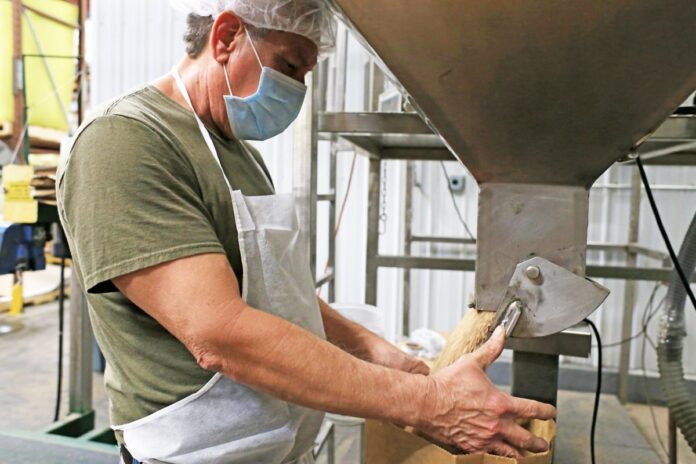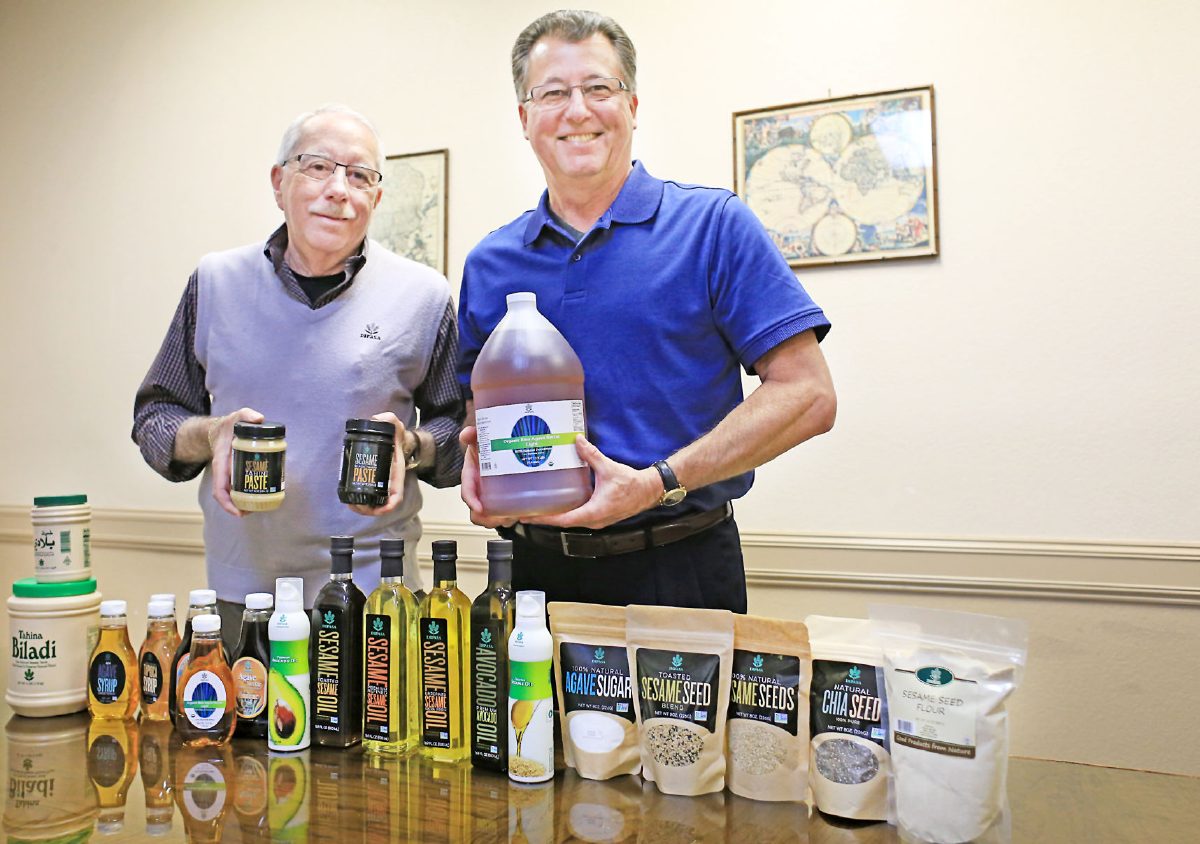Despite some tough times, the sesame seed has been very good to Dipasa USA Inc.
Despite some tough times, the sesame seed has been very good to Dipasa USA Inc.
Cesar Coello founded Dipasa Group in Mexico in 1974, the company going on to become Latin America’s leader in sesame seed research and development. Coello, in 1984, established Dipasa USA in Brownsville as an independent corporation to serve the U.S. market.
Why Brownsville? Leopoldo Cruz, Dipasa USA general manager and part owner, said it was mainly because a tractor trailer full of sesame seeds could drive from Guanajuato, Mexico, Dipasa Group’s home base, to Brownsville in 10 hours. Coello also liked Brownsville and had a vacation home in Rancho Viejo, which may have had something to do with it as well, said Cruz, who has been with Dipasa USA for 20 years.
“At the beginning, basically, the company was created as a trading company, bringing the goods from Mexico and selling them in the U.S., essentially related to the sesame seed,” he said. “And all the products that were manufactured in Mexico were derived from the sesame seed.”
At one point, Dipasa USA started selling a product developed by Dipasa Group for McDonalds: a flat sesame seed that stayed on the hamburger bun instead of falling off and didn’t turn brown in the oven. The new product, dubbed the “aqua-hulled” sesame seed, was a sensation.
McDonald’s started playing up its new-and-improved sesame bun. The big bakeries that made buns for McDonald’s, Burger King, Wendy’s and other national franchises became big customers.
“For a few years this was the main product that Dipasa USA was selling, this particular seed, for hamburger buns,” Cruz said.
During the period, from the mid- to late-1990s, roughly 80 percent of the company’s business was coming from just a few large buyers. Before long, though, foreign competition started taking big bites out of Dipasa USA’s market share.
“Of course, all the sesame producers in Central America and Mexico, everybody wanted to sell in the U.S. because it was a huge market, so we were facing very tough competition at that time,” Cruz said. “And we started struggling, fighting for the contracts with these bakeries. It was always difficult, but it started getting really bad around the early 2000s.”
Garry Lowder, Dipasa USA vice president of marketing and 31-year company veteran, said some competitors passed off their seeds as aqua-hulled, which they were not.
“Because of the influx of the new competition from India, from Africa, from South America, even from China at that time, from Sudan — it got to be where we were working off quarters of a cent,” he said. “We were moving an enormous volume of seed. We had an enormous staff to manage that. But we were making pennies on the dollar.”
The company’s directors decided to change course and began bidding the contracts at a competitive price without aiming to undercut every other competitor.
“If we didn’t get the contracts, we didn’t get the contracts,” Lowder said. “We didn’t get the contracts. It was a big hit on cash flow, but we survived.”
Dipasa USA downsized, moving into a small suite of offices within its Ruben Torres Boulevard complex and leasing out the rest. Things were looking bleak when a lifeline appeared in the form of a Massachusetts-based hummus maker in the market for tahini — lots of it.
Tahini, a paste made from sesame seeds, is a principal ingredient of hummus. As it happened, Dipasa USA had started manufacturing tahini years before in addition to selling aqua-hulled seeds.
“It turned out that around the early 2000s one company in Massachusetts had the idea of expanding the hummus market to supermarkets nationally,” Cruz said. “They had just started selling in the supermarkets. They came to us and we started doing business with them, selling them tahini in much larger quantities.”
Until then, the tahini market was limited, he said. Although hummus and tahini were staples among Middle Eastern communities in the United States, few outside those communities knew anything about it, Cruz said. The Massachusetts company’s marketing push succeeded, however, and today hummus is everywhere.
That’s been very good for Dipasa USA. Other hummus makers have popped up to feed the national craze, creating more of a demand for tahini. Dipasa USA makes and ships 80,000 pounds of tahini per week, Lowder said.
“Well, when one door closes, another opens,” he said. “We rebounded within two years.”
Frito Lay, with its “Sabra” hummus brand and sprawling distribution network, has popularized the stuff on a massive scale. The U.S. market for hummus — dubbed the “second salsa” — continues to grow nationally about 20 percent per year, Cruz said.
“We concentrated on the tahini market because that was the opening opportunity, and it turned out to be very, very profitable,” he said. “It was a good move. We experienced a very speedy and healthy growth.”
Dipasa USA once again occupies its entire complex, which it now owns, and has built two new warehouses. While it still maintains a slice of the aqua-hulled seed market, the company has substantially deepened its customer base and diversified its offerings. Dipasa USA now also provides co-packing services — packaging, labeling and shipping for products made by other companies, including include agave syrup, toasted sesame oil and refined avocado oil, to name a few.
Dipasa USA also manufactures organic coconut butter for a private label. The company, which sells small quantities online to non-commercial customers, is very much focused on the organic/health foods market these days. Cruz calls it “selling health.”
“This is what we do, and we love it,” he said. “There was a point in time, the breaking point for Dipasa USA, and that was when we moved from a commodity type of bulk business to a more value-added product mix. We designed it that way, because we were going nowhere. It was a decision that we made in order to survive.”







